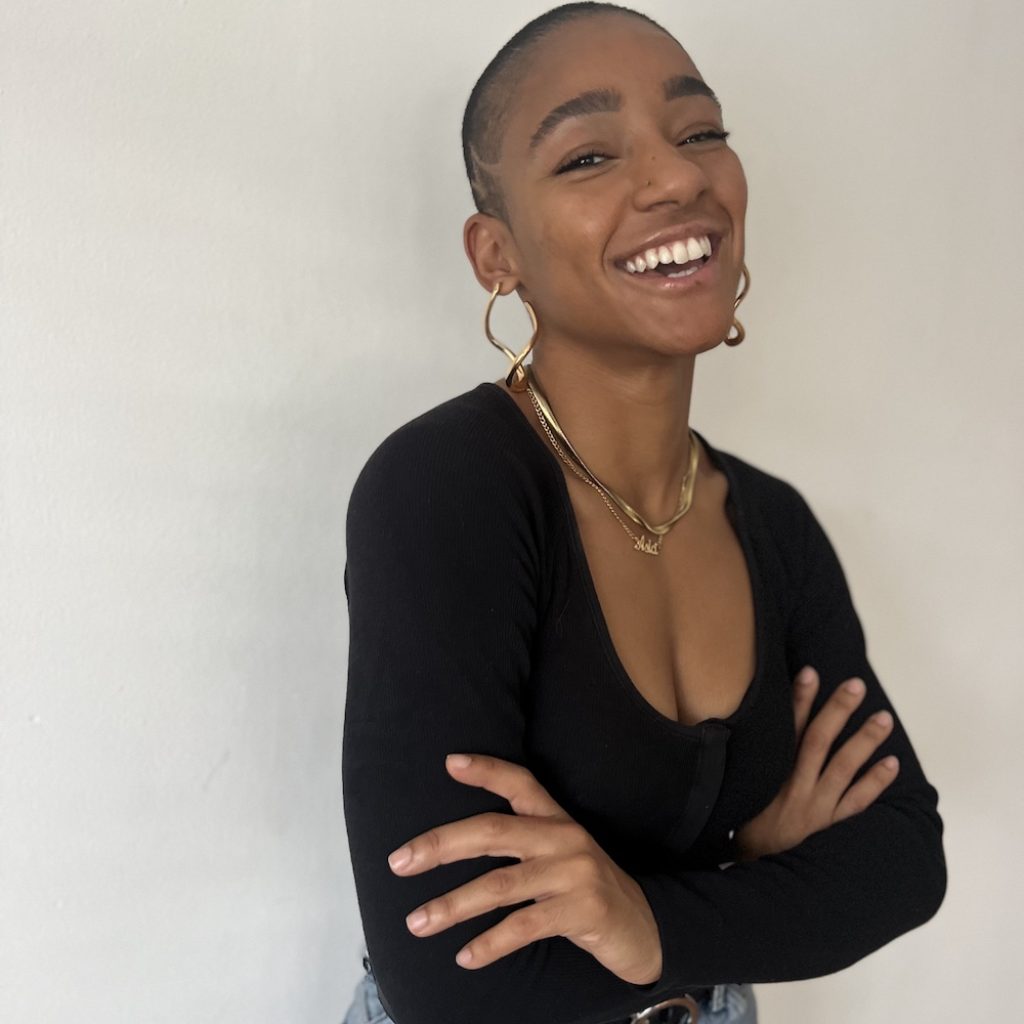At a certain point in their career, many dancers get an agent — to help them book work, to advocate for them during contract negotiations, to keep them connected with viable opportunities and more. Booking an agent can therefore feel like a sign of career advancement — of having “made it,” so to speak.
For some emerging artists, such a goal can come with many crucial questions. Where can agents who might book me see me and meet me? Is it the right time to book an agent; is it worth it for where I am now? If I were to get an agent, how can I make the most out of that working relationship?
To address these and many other questions that agent-seeking dance artists may have, Dance Informa speaks with two artists who’ve been there: Kaitlin Niewoehner (currently on tour with West Side Story) and Asia Miller (Los Angeles, CA). They’ve both booked agents, and are currently working with an agent – offering them experience and insights to help other artists perhaps have a smoother, more fruitful time through that journey.
The ‘when,’ ‘what’ and ‘why’
Earlier in her career, Niewoehner didn’t see it as quite the right time for an agent. Her performing contracts simply weren’t paying enough to divvy out a percentage of that to an agent. Yet, as she got further along that path, she started to see how easy it is for producers to take advantage of performers – and, for their part, performers to not fully understand contract dynamics. For Niewoehner, having an agent “makes sense to help with the contract side of things.”
For Miller, getting an agent helped distinguish her from other L.A.-based artists when she first moved out there (during COVID, after lockdowns had lifted enough to make the move from NYC). “L.A. is just so saturated,” she notes. “You just have to get it done and put yourself out there when you can!” An agent can certainly help artists do just that.
The ‘who’ and ‘where’
Okay, so say that you’re an artist who believes that now is the right time for you to get an agent. First, how do you know if a certain agent is right for you? One aspect of that question is if they’re right – and realistic – for where you are right now in your career.
Niewoehner suggests following a prospective agent on Instagram and seeing what their clients are booking. Is it work that you want to be doing, and is booking that kind of work attainable at this point in your career? Miller thinks along the same lines; she suggests “doing your research” about a prospective agency, with “what kind of work you want to be doing” very much in mind as you do so.
Niewoehner raises another important question: is that agent already representing someone who’s exactly your “type”? Bigger agencies might be able to represent multiple people of the same type, she notes – but it’s a dynamic to consider. “When reaching out to a specific agent through a referral, it’s best to have friends of different types represent you,” she notes. Miller agrees; she points out that if you do get signed with an agency that represents many artists who look just like you, you’ll have to work that much harder to distinguish yourself.
So you have a meeting with a prospective agent in your calendar – great! When you first meet with them, gauge if they seem interested in you and your career, Niewoehner recommends. “Are they approachable? Does there seem to be potential for you to build a successful working relationship with them?”
All of that can be challenging to read at first, as you’re feeling each other out, she adds. Yet, sometimes our gut instincts can give us useful clues. Additionally, when it comes to the question of if they can truly help you advance in your career, consider if they have sway with casting as well as power at large in the industry. Both things are important, Niewoehner believes.
Miller has worked with two different agencies – a smaller and a larger one – so she has a sense of how the size of the agency can also impact things. “A bigger agency has a bigger name, to get you into different rooms, but a smaller agency can give you more individualized attention,” she explains.
While already signed with an agency on the smaller side, she had a consultation meeting with representatives from a larger one. What she mainly wanted to find out from that meeting was how the larger agency might help her “build on what [her] first agency helped [her] to achieve.” Niewoehner advocates for entering those meetings with that sort of clarity. “Come with specific questions – for example, on contracts,” she advises.
The ‘how’
This may very well be the part that many agent-seeking artists truly wonder about – but how do I go about booking one? Miller and Niewoehner have some great tips here. Have all of your materials ready, in a presentable portfolio, for one. Also be sure to “take advantage of opportunities to put yourself in front of them – put yourself out there,” Miller recommends.
Even if those opportunities don’t result in booking an agent, they could have other positive outcomes. For example, Niewoehner went to an agent networking event with her dream agency – and while it didn’t lead to her booking an agent, she did end up networking with a choreographer whose eye she caught.
Another effective strategy can be simply reaching out to prospective agents, leveraging your existing network to do so. Niewoehner reached out to friends who have agents, asking them if they’d be alright with sharing their agent’s contact info. She then reached out to those agents, asking if they’d be interested in meeting. “So many of them didn’t respond – but the one who did respond is now my agent,” she shares.
…and more: making the most of having an agent
Niewoehner is also clear: “Even when you get an agent, it’s what you make of it. You still have to work to get yourself into rooms, and you need to be responsive and professional in your communication.” Miller agrees. “The work is not done when you get an agent!” she says.
If your agent is struggling to be responsive and timely, it could be because they’re working with 30 other clients. You can rise toward the top of their pile, so to speak, by being as professional as possible. Being as transparent and communicative as possible, in a professional manner, also creates “opportunities to build trust,” Niewoehner says. Miller believes that showing up at agency events also helps there. “Show your face, or you can get forgotten about,” she warns.
Niewoehner also suggests always having something new to give them when you meet with them – for example, an updated reel or an invitation to an upcoming work that you’ll be performing in. “Have something fresh to prove that you are actively doing work.” Overall, the quality of your work will speak for itself, Niewoehner affirms.
An agent and their client are a team. Making the match is the first step, and then the really exciting work can happen. With diligence, professionalism and thoughtfulness, that can transpire for you, too!
By Kathryn Boland of Dance Informa.




















